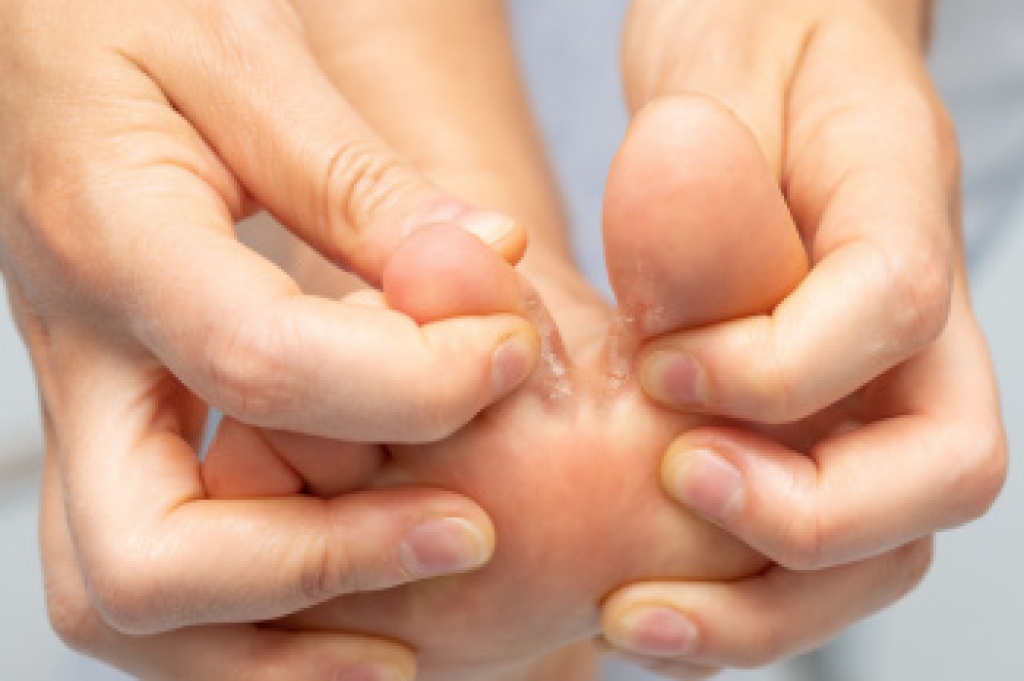
Topical treatments are the first line of defense against athlete's foot, a common fungal infection that affects the skin on the feet. These treatments are designed to target the fungus directly, helping to clear the infection and relieve symptoms such as itching, burning, and scaling. Mild antifungal creams, sprays, or powders containing active ingredients like clotrimazole, miconazole, or terbinafine are commonly used. These medications work by disrupting the fungal cell membranes, effectively eliminating the infection. It is important to apply these treatments consistently for the duration recommended, even if symptoms begin to improve, to ensure the infection is fully eradicated. In addition to medicated creams, keeping the feet clean and dry is critical. Using antifungal powders in shoes and socks can help prevent reinfection. For persistent or severe cases, it is suggested that you schedule an appointment with a podiatrist who may prescribe stronger topical or oral antifungal medications.
Athlete’s Foot
Athlete’s foot is often an uncomfortable condition to experience. Thankfully, podiatrists specialize in treating athlete’s foot and offer the best treatment options. If you have any questions about athlete’s foot, consult with Stephanie Tine, DPM from Flamingo Foot and Ankle. Our doctor will assess your condition and provide you with quality treatment.
What Is Athlete’s Foot?
Tinea pedis, more commonly known as athlete’s foot, is a non-serious and common fungal infection of the foot. Athlete’s foot is contagious and can be contracted by touching someone who has it or infected surfaces. The most common places contaminated by it are public showers, locker rooms, and swimming pools. Once contracted, it grows on feet that are left inside moist, dark, and warm shoes and socks.
Prevention
The most effective ways to prevent athlete’s foot include:
- Thoroughly washing and drying feet
- Avoid going barefoot in locker rooms and public showers
- Using shower shoes in public showers
- Wearing socks that allow the feet to breathe
- Changing socks and shoes frequently if you sweat a lot
Symptoms
Athlete’s foot initially occurs as a rash between the toes. However, if left undiagnosed, it can spread to the sides and bottom of the feet, toenails, and if touched by hand, the hands themselves. Symptoms include:
- Redness
- Burning
- Itching
- Scaly and peeling skin
Diagnosis and Treatment
Diagnosis is quick and easy. Skin samples will be taken and either viewed under a microscope or sent to a lab for testing. Sometimes, a podiatrist can diagnose it based on simply looking at it. Once confirmed, treatment options include oral and topical antifungal medications.
If you have any questions, please feel free to contact our office located in Fort Lauderdale, FL . We offer the newest diagnostic and treatment technologies for all your foot care needs.